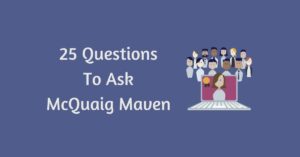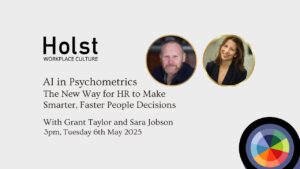The right tools save time and money in the recruitment process, deliver good recruitment ROI and put your organisation in the best possible position to take post-pandemic opportunities.

We understand that it’s a daunting task to overhaul the recruitment process. Especially if that process has been in place for some time. Especially if you’re new in your role. At Holst, we aim to take away some of the risk and the burden of rethinking your recruitment practice. It’s our goal to equip you and your organisation with the tools and structure you need to show that the changes you make will have a positive impact on your recruitment ROI.
Assessment tools can save time and reduce costs in the recruitment process. The right tools used well can shorten the process, minimise the risk of a costly bad hire and even reduce the less productive ‘settling in’ period of a new hire. Big claims, you may say. But when you know how an individual will behave in the role and the skills they have/need to develop, you are more than halfway to a successful outcome.
Personality Testing - Behavioural Assessment
However you choose to describe them, robust psychometrics give valuable insights into your candidates. However, not all assessments are equal. We advocate the use of McQuaig. Over the last 50+ years it has helped organisations across the world to make sound people decisions.
It’s USP is the picture it paints of an individual, both in their ‘real’ state (how they are innately) and in their ‘situational’, which reflects the situation they face at the time of assessment. If the two are different, it gives the recruiter the opportunity to dive deeper at interview. Perhaps the candidate is going through a life changing event. Perhaps they hate their current role. Whatever the background, you have the opportunity to ask the questions which could be the difference between a great hire or a costly error.
McQuaig also allows you to benchmark the job itself and compare your candidates to that benchmark. Identify top performers to create a picture of what success in the role looks like. That said, you should not try to ‘clone’ your best people. Instead look for the traits that generate success, and because no one is perfect, identify what else your team needs for diversity.
But, determining personality traits is not enough. Successful candidates also require human skills to build the strong workplace relationships that make a team effective in the pursuit of their goals.
Human Skills - Power Skills - Soft Skills
If you had to identify three areas that are essential for success in a role, emotional intelligence, resilience and motivation will definitely be up there on the list for the most for most hiring managers and HR professionals. Disclosure – we know this, because we surveyed our client base on just this question.
Behavioural psychometrics do not measure these areas. This is because emotional intelligence, resilience and motivation are not behavioural traits, they are skills. Behavioural traits are fixed. We are what we are. We can flex and adjust but ultimately we tend to operate at our best when in our innate ‘real’ state. In contrast, emotional intelligence, resilience and motivation are skills that we can develop and improve. We can use these skills to support our traits, to be the best that we can be without stretching to the point of breakdown.
With flowprofiler®, we can identify and measure these skills as part of the recruitment process. This valuable data from flowprofiler® helps hiring managers, recruiters and L&D professionals to understand whether a candidate is likely to be successful and crucially what development support they may need in the role.
For instance, what motivating dimensions mean most to your candidate? Is that likely to fit with the role and the team culture? Will they be motivated by reward, or recognition? Do they like to collaborate, or prefer to work independently? These are the details which enable your interviewers to ask the right questions, avoid making assumptions and not fall into the trap of hiring in their own image.
Fit For Purpose Remote Recruiting
Your next great hire could be anywhere in the world right now. The Covid pandemic has opened up recruitment possibilities. But it’s hard to get a feel for the person sitting in front of you on the screen. Although (provocation) perhaps this reduces the risk of ‘gut feel’ and ‘you remind me of me’ hiring.
Assessments can replace that element of ‘gut feel’ with objective analysis. For sure, some interviewers will be reluctant to permanently hang up their old school approach to hiring, but with support and training they can develop effective remote hiring interview skills that are fit for purpose, and deliver excellent results.
Talk to us
Talk to us about integrating McQuaig and flowprofiler® into your recruitment process to deliver a positive return on investment in your recruitment strategy.





